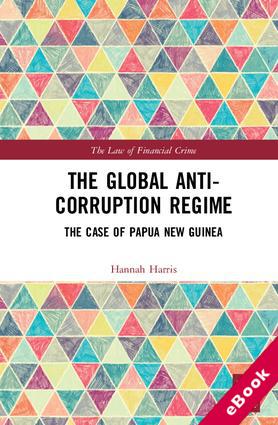
The device(s) you use to access the eBook content must be authorized with an Adobe ID before you download the product otherwise it will fail to register correctly.
For further information see https://www.wildy.com/ebook-formats
Once the order is confirmed an automated e-mail will be sent to you to allow you to download the eBook.
All eBooks are supplied firm sale and cannot be returned. If you believe there is a fault with your eBook then contact us on ebooks@wildy.com and we will help in resolving the issue. This does not affect your statutory rights.
This book tackles the challenging topic of corruption. It explores the evolution of a global prohibition regime against corrupt activity (the global anti-corruption regime). It analyses the structure of the transnational legal framework against corruption, evaluating the impact of global anti-corruption efforts at a national level. The book focuses on the United Nations Convention against Corruption (UNCAC) as the primary tool of the global anti-corruption regime. It provides new and engaging material gathered in the field, including first-hand accounts from actors at international, regional, and domestic levels. By documenting the experiences of diverse actors, the book makes a substantial contribution to literature on corruption and anti-corruption efforts. Synthesising empirical research with an exploration of theoretical literature on corruption and regime evolution results in novel suggestions for improvement of the global anti-corruption regime and its legal tools.
The Global Anti-Corruption Regime is a well-rounded text with a wealth of new information that will be valuable to both academic and policy audiences. It clarifies the factors that prevent current anti-corruption efforts from successfully eliminating corrupt activity and applies the five-stage model of global prohibition regime evolution to the global anti-corruption regime. It will be of interest to researchers, academics, policymakers, and students interested in anti-corruption law, comparative law, transnational criminal law, international law, international relations, politics, economics, and trade.